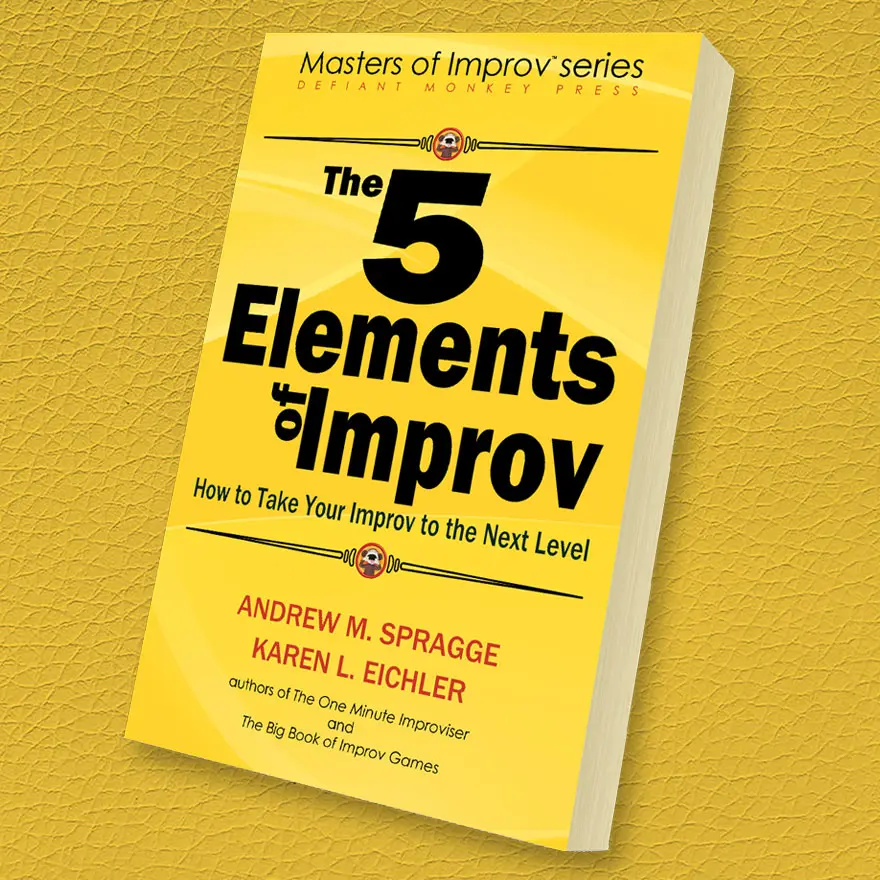Ask 25 improvisers what the secret is and you’ll get 50 different answers

In our book, The 5 Elements of Improv, we outline the major points that serve to enhance and develop the improv experience, taking your scenes to the next level.
- Story – Improv is a subset of theatre, and theatre is primarily a storytelling art form. Concentrate on telling a story on stage. It doesn’t have to be deep, it doesn’t have to be complex, but audiences want to hear a story. While comedy tends to be the main thrust of improv, remember that it doesn’t have to be; we’ve told stories on stage that began as comedies and ended up bittersweet, and the audience ate it up. Tell a story you’d be interested in seeing…no one wants to see you buying your groceries unless that activity serves as a launching point for a tale worth watching.
- Environment – Set your platform (the who, what, where, and when) early and respect what you’ve built. Make it believable for yourselves, and the audience will believe it. Create characters that the audience will be interested in, but resist the temptation to make them caricatures. If your characters are gross and distorted, the audience will lose interest and see you for what you’re doing, which is going for cheap laughs. Cheap laughs demean what we as actors are creating.
- Trust – Trust must be given, and trust must be earned. Trust is earned by making valuable offers to your scene partners and accepting their offers, advancing and expanding upon them through the Yes, and… process. It is earned by respecting what your fellow actors create and by supporting them throughout the scene. Trust is gained by listening and acting in a positive manner to what you have heard.
- Focus – Maintain awareness of your situation at all times. Know where you are, what is going on, who you are (character) and when you are. Know your platform and keep your eyes and ears open; if you sense you are drifting, pull yourself back and re-enter the scene. If your partner seems to be losing focus, take the reins, pull them back in and move on with the scene. Give focus in a scene to the other actors when appropriate and take focus when it is your turn. Stay in the moment; it’s easy to drift if you’re thinking ahead or worrying about what’s already been done.
- Showmanship – We must appear confident to our audience even when we don’t feel it. Feigned confidence will lead to real confidence, as the audience will react to our appearance of confidence and react to us as if our confidence were real; this in turn will help us nurture true confidence (did we say confidence” enough times in that sentence?) Be polite and courteous to your audience and venue owners, and maintain a professional appearance (even if that appearance is meant to look casual).
These are by no means the only strategies for great improv, but they are among the most important. Practice these skills and you’ll be well on the way to mastering the art of improv.

The 5 Elements of Improv – How to Take Your Improv to the Next Level

